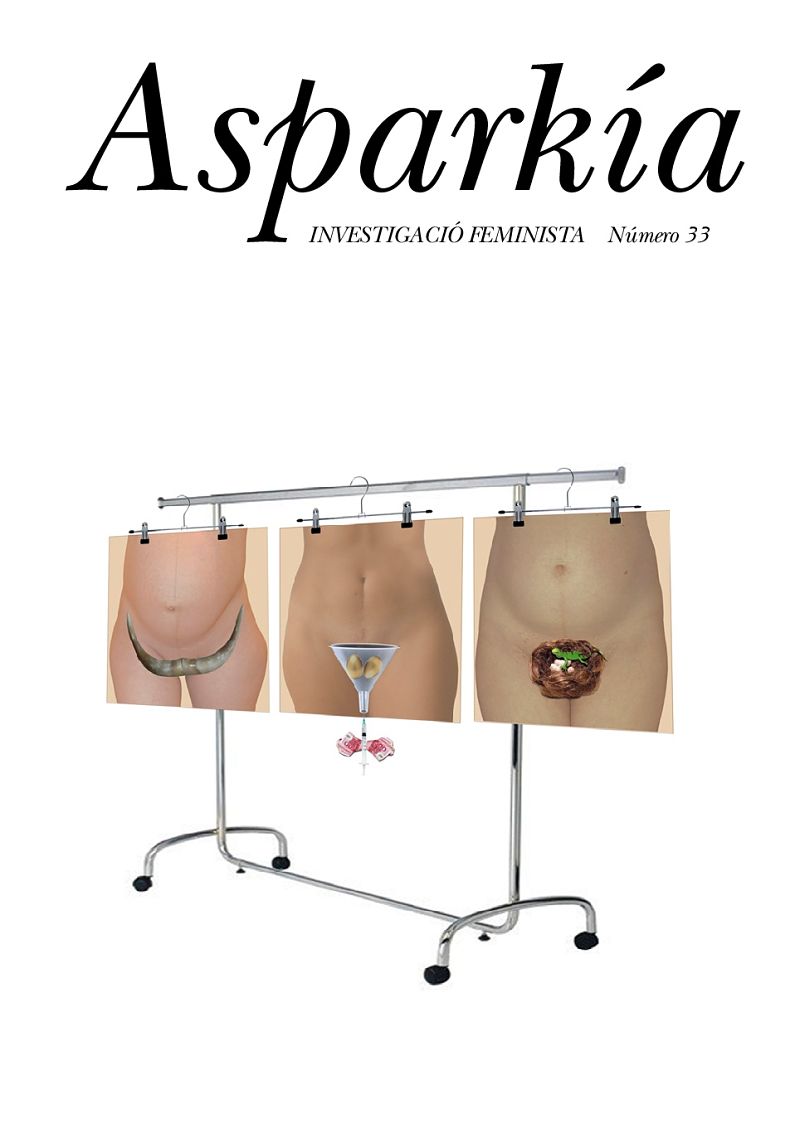Priscilla Horton, la ninfa de cabellos dorados: una actriz convertida en gerente teatral en el Londres victoriano / Pricilla Horton, the Nymph with the Golden Locks: An Actress Turned Theatre Manageress in Victorian London
Contenido principal del artículo
Resumen
Resumen
En este artículo repasamos la vida de Priscilla Horton (1818-1895), actriz y gerente de teatro del siglo xix más conocida como Mrs. German Reed. A menudo olvidada en los volúmenes dedicados al estudio del teatro victoriano, su trayectoria nos permite descubrir la situación social de las actrices de la época y las dificultades a las que debían hacer frente. Sin embargo, a diferencia de muchas otras, Horton disfrutó del favor de sus contemporáneos gracias a su talento sobre los escenarios. Además, su matrimonio con Thomas German Reed (1817-1888) y la posterior creación del Gallery of Illustration en Regent Street, Londres, le otorgó un nuevo estatus de patrona de las artes y de mujer refinada. Junto a su marido, Horton impulsó un nuevo género a mediados del siglo xix, el «entretenimiento de salón» o drawing-room entertainment, atrayendo incluso a la élite que consideraba el teatro como vulgar e inmoral.
Palabras clave: Priscilla Horton, Mrs. German Reed, actriz victoriana, teatro inglés victoriano, entretenimiento de salón.
Abstract
In this article, I scrutinize the life of Priscilla Horton (1818-1895), a nineteenth-century actress and theatre manageress, better known as Mrs. German Reed. Oftentimes forgotten in the volumes dedicated to the study of Victorian theatre, her career in the theatre scene exemplifies the social situation of the actresses of the time and the difficulties they faced. However, unlike many others, Horton enjoyed the favor of her contemporaries thanks to her talent on stage. Moreover, her marriage to Thomas German Reed (1817-1888) and the establishment of the Gallery of Illustration in Regent Street, London, endowed her with a newfound status of patroness of arts and refined woman. Next to her husband, Horton promoted a new dramatic genre in the mid-nineteenth century: the drawing-room entertainment. In the end, the Reeds’ establishment made theatre popular amongst the elite circles who claimed that theatergoing was sinful and immoral.
Keywords: Priscilla Horton, Mrs. German Reed, Victorian actress, Victorian English theatre, drawing-room entertainment.
Descargas
Detalles del artículo
Citas
ANÓN (1866). «Mrs. German Reed» en Bow Bells, a magazine of General Literature and Art, for family reading, agosto 1866, p. 41.
ANÓN (1869). «The humble apology of Grace Tarleton, a poor ballet girl» en Judy, or the London Serio-Comic Journal, 10 febrero 1869, p. 167.
ANÓN (1895). «The German Reed Entertainment» en Illustrated Sporting and Dramatic News, 23 de marzo de 1895, p. 10.
BOOTH, Michael R. (1991). Theatre in the Victorian Age, Cambridge: Cambridge University Press.
BRATTON, Jacky (2011). The Making of the West End Stage: Marriage, Management and the Mapping of Gender in London, 1830-1870, Cambridge: Cambridge University Press.
CLARK, Anna (1995). The Struggle for the Breeches. Gender and the Making of the British Working Class, Berkeley and Los Angeles: University of California Press.
CLARK, Linda L. (2008). Women and Achievement in Nineteenth-century Europe, Cambridge: Cambridge University Press.
CLÚA GINÉS, Isabel (2007). «El cuerpo como escenario: actrices e histéricas en el fin-de-siècle» en Dossiers Feministes, Nº10, pp. 157-172.
DAVIS, Tracy C. (2000). The Economics of the British Stage 1800-1914, Cambridge: Cambridge University Press.
DAVIS, Tracy C. y Ellen DONKIN (eds.) (1999). Women and Playwriting in Nineteenth-century Britain, Cambridge: Cambridge University Press.
FRASER, Hilary, GREEN, Stephanie y Judith JOHNSTON (2003). Gender and the Victorian Periodical. Cambridge: Cambridge University Press.
GÄNZL, Kurt (2018). Victorian Vocalists, New York: Routledge.
GARBER, Marjorie (2008). Shakespeare and Modern Culture, New York: Pantheon Books.
GORON, Michael (2016). Gilbert and Sullivan’s ‘Respectable Capers’. Class, respectability and the Savoy Operas, 1877-1909, London: Palgrave Macmillan.
HOOD, Thomas (1871). «In town» en The Dark Blue, Vol. 1, Nº1, pp. 114-118.
HUHTAMO, Erkki (2013). Illusions in Motion: Media Archeology of the Moving Panorama and Related Spectacles, Cambridge: The MIT Press.
LEVINE, Philippa (1987). Victorian Feminism, 1850-1900, Tallahassee: Florida State University Press.
MARSHALL, Gail (1998). Actresses on the Victorian stage: feminine performance and the Galatea myth, Cambridge: Cambridge University Press.
NORDAU, Max (1895). Degeneration, London: Heinemann.
NORWOOD, Janice (2017). «Picturing Nineteenth-Century Female Theatre Managers: the Iconology of Eliza Vestris and Sara Lane» en New Theatre Quarterly, Vol. 33, Nº1, pp. 3-21.
POWELL, Kerry (1997). Women and Victorian Theatre, Cambridge: Cambridge University Press.
REED, Mr. y Mrs. German (1860). Popular Illustrations from Real Life. Entertainment for performance at the Royal Gallery of Illustration, Regent Street, London. Lord Chamberlain’s Catalogue of Plays, British Library manuscripts collection. Add MS 52999 S.
SHANLEY, Mary Lyndon (1989). Feminism, Marriage and the Law, Princeton: Princeton University Press.
SHAW, Alison y Shirley ARDENER (eds.) (2005). Changing Sex and Bending Gender, New York: Berghahn Books.
STRAUB, Kristina (1992). Sexual Suspects: Eighteenth-Century Players and Sexual Ideology, Princeton: Princeton University Press.
SUMMERS, Montague (1966). Shakespeare Adaptations. The Tempest, the Mock Tempest, and King Lear, New York: Scholarly Books.
W. J. (1805). «To the editor of the Lady’s Museum» en The Lady’s Monthly Museum, March 1st, p. 191.


